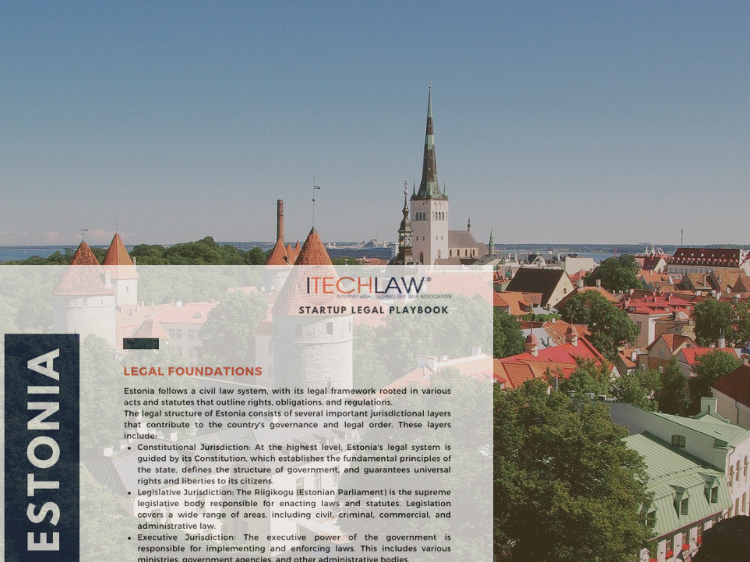
Author Yaroslava Sushinets, Magnusson.
On 1 September, 2023, the 2019 Hague Judgments Convention enters into force between Ukraine and the Member States of the European Union, except for Denmark. The Convention regulates, and will significantly reduce the legal uncertainty in, mutual recognition and enforcement of foreign judgments in civil and commercial matters between the contracting states. Moreover, with the potential of additional contracting states, the Convention has the potential to create a universal mechanism for recognition and enforcement of court judgments, comparable to the one established for the enforcement of arbitral awards by the 1958 New York Convention. This article summarises the key points of relevance of the Convention, what the Convention changes for the contracting states and the prospects of the Convention.
Background to the 2019 Hague Judgments Convention
The 2019 Hague Judgments Convention was concluded on 2 July 2019, following the long-running HCCH “Judgments Project”, initiated in 1992 and resumed in 2012 after the adoption of the 2005 Hague Choice of Court Convention.
The aim of the Judgments Project was to create a universal mechanism of recognition and enforcement of foreign judgments in civil and commercial matters. This to promote effective access to justice for all and to facilitate rule-based multilateral trade and investment, and mobility, through judicial co-operation. Such a universal mechanism has long been missing, making recognition and enforcement of foreign judgments in civil or commercial matters sometimes difficult, especially in states with a restrictive view on recognition and enforcement such as Sweden.
The 2019 Hague Judgments Convention is to be seen as a complement to, and is considerably wider in its scope than the 2005 Hague Choice of Court Convention. The 2005 Hague Choice of Court Convention concerns jurisdiction and recognition of decisions based on a choice of court agreement between the parties. The 2019 Hague Judgments Convention on the other side, includes rules for court judgments beyond cases where there was a judgment produced based on a choice of court agreement.
As of now, there are only two Contracting States of the Convention – the European Union and Ukraine. Since the European Union exercises competence over all the matters governed by the Convention, all the EU Member States, except for Denmark, are bound by the Convention. Thus, the Convention will enter into force on 1 September 2023 and will apply between Ukraine and the Member States of the European Union, except for Denmark. The Convention applies to judgements that have been rendered in proceedings instituted when the Convention had effect between the relevant states.
Key points of interest of the 2019 Hague Judgments Convention
- As mentioned above, the Convention applies to civil or commercial matters. However, certain legal areas, including family law matters, insolvency, IP, arbitration, and others (Article 2), are excluded from its scope.
- Pursuant to Article 18 of the Convention, any Contracting State may exclude certain specific matters from the scope of its application. Noteworthy is that the EU has excluded non-residential leases (tenancies) of immovable property situated in the EU.
- Article 4 provides for the recognition and enforcement of a court judgment from one contracting state in the courts of another with no review of the merits of that judgment. Further, a judgment shall be recognized and enforced only if it has effect and is enforceable in the State of origin (the state in which the judgment was rendered). This, inter alia, means that a longer period of limitation in the requested State (the state in which enforcement is sought) will not extend the enforceability of a foreign judgment that is no longer enforceable in the State of origin. However, Article 4(3), does not preclude the requested State from refusing to enforce a foreign judgment if the applicable limitation period in the State of origin is longer than in the requested State. Thus, one should be aware of the relevant limitation periods in both the requested State and State of origin when seeking enforcement.
- Article 5 sets out requirements for a judgement to be eligible for recognition and enforcement, including, inter alia, where the defendant was habitually resident or had their principal place of business, or consented to the jurisdiction.
- Article 7 sets out exceptions to when recognition and enforcement may be refused. A state is not obliged to refuse recognition and enforcement but is entitled to do so in such specific cases. These exceptions include, inter alia, that: – there was a fundamental defect in notification of the claim, – the judgment was obtained by fraud, – the judgement is in violation of public policy in the requested State, – the judgement was rendered in breach of choice of court agreement, – the judgement is inconsistent with a prior judgement.
- Under Article 10, recognition or enforcement may also be refused if, and to the extent, that a judgment awards damages, including exemplary or punitive damages, that do not compensate a party for actual loss or harm suffered.
- Judicial settlements are enforceable (Article 11).
- The Convention does not envisage the specific procedure for recognition, declaration of enforceability or registration for enforcement, and the enforcement of judgment. Instead, it refers to the law of the requested State (Article 13).
- Article 12 lists the documents to produce when seeking recognition or applying for enforcement. All these documents must be accompanied by a certified translation. However, it should be noted that the court can require additional documents in order to verify that the conditions of Chapter II of the Convention are complied with. Further, the Convention does not preclude the requested State from requiring legalisation of foreign legal documents. Hence, this question is left to the discretion of and governed by the rules of the State where recognition and enforcement is sought.
- The Convention provides the minimum requirements for recognition and enforcement and, thus, does not prevent additional recognition and enforcement under the local national law, except for judgments that rule on rights in rem in immovable property (Articles 6 and 15).
- Subject to Article 23 thereof, the Convention does not supersede or affect the application of previously or subsequently concluded bilateral and multilateral international instruments. This, inter alia, means that the Convention will not apply to judgements given by a court in an EU Member State when seeking recognition or enforcement in another EU Member State. These judgements will still be recognised and enforced in accordance with the Brussels I Regulation and other EU Regulations.
- Article 29 of the Convention enables states to make declarations in a certain time to prevent the application of the Convention between itself and a certain state. This is an interesting political clause that entitles states to decide whether they wish to have treaty relations with any certain state that accedes to the Convention.
What does the 2019 Hague Judgments Convention change for the current Contracting States?
There exist several bilateral treaties on legal assistance regulating, inter alia, mutual recognition and enforcement of judgments, which Ukraine concluded with some of the EU Member States after regaining its independence, in particular with Poland, Latvia, Lithuania, Estonia, Czech Republic, Hungary, Romania, Greece, Bulgaria, and Cyprus. Additionally, the mutual recognition and enforcement of judgments between Ukraine and Croatia and Italy is still governed by the 1962 and 1979 treaties that USSR has entered into with Yugoslavia and Italy respectively.
While still being in force and given priority over the Convention, most of these treaties do not cover commercial and labour matters. Therefore, such matters will be governed by the 2019 Hague Judgments Convention. Further, some of these treaties when applicable, for example provide for slightly different lists of supplementing documents that need to be submitted together with the application for recognition and enforcement of a judgment. Consequently, when seeking recognition and enforcement of judgments in Ukraine originating from the above-mentioned states and vice versa, one should also pay attention to those bilateral treaties.
The EU Member States which do not have bilateral treaties with Ukraine, will obviously have a much better possibility and foreseeability in recognition and enforcement of judgments in civil and commercial matters. Up and until now, in absence of international treaties, recognition and enforcement in Ukraine has been based on the principle of reciprocity. Some of the EU Member States, e.g., Sweden, do not generally recognise and enforce the court judgments granted in countries, which they have not concluded the relevant treaties with. Accordingly, subject to the principle of reciprocity, the judgments originating in such states might not be enforceable in Ukraine.
Further, the Convention facilitates recognition and enforcement since it, inter alia, limits the list of documents to provide and limits the grounds for refusal. For example, under Ukrainian case law in order for the defaulting party to be considered duly notified, it needs to have been informed by the court of the time and place of the trial. As a result, it is not enough for the judgment creditor to submit the proof of notification of the initial proceedings to the defendant. In practice, this has quite often led to refusal by Ukrainian courts to grant recognition of foreign judgments.
The 2019 Hague Judgments Convention does not contain such a requirement in its Articles 7(1) and 12(1)(b), since the interpretation of the due notice principle here is limited to the proper notification of the document instituting the proceedings or an equivalent document. Given that Article 4(1) of the Convention prohibits to refuse recognition and enforcement on any grounds other than the ones provided by it, this will increase the enforceability of foreign judgments in Ukraine and several other states.
Thus, the Convention’s application between the EU Member States and Ukraine will facilitate the mutual enforcement of judgments and, accordingly, the development of trusting relationships, trade and investments inter se.
What are the prospects of the 2019 Hague Judgments Convention?
As mentioned above, there are currently only two Contracting States of the Convention – the European Union and Ukraine. However, the Convention has other signatories, including Costa Rica, Israel, Montenegro, North Macedonia, and the USA. However, these states have not ratified it yet.
Some of the clear advantages of the Convention that might encourage other states to join it are:
- Its non-interference with already existing multi- and bilateral international instruments, as well as national law.
- The Contracting State’s ability to limit recognition and enforcement (Article 17) and to exclude specific matters and judgments from its application (Articles 18 and 19).
- The State’s right not to bound itself by this Convention in relations with another specific State (Article 29).
Another rationale for joining the Convention may be the countries’ need to restore the treaty relations for recognition and enforcement of court judgments with other states, which in the long run is more convenient than concluding numerous bilateral agreements.
For example, as a result of Brexit, the UK is currently only a party to the 2005 Choice of Court Convention, and even though it has applied to accede to the Lugano Convention, the EU still has not consented to this. If the UK joins the 2019 Hague Judgements Convention, it will provide the UK with a new mechanism for recognition and enforcement of judgments to replace the Brussels I regime, which it can no longer apply.
It is also worth mentioning that after Ukraine’s 1 December 2022 withdrawal from the 1993 Minsk Convention, which has been, inter alia, regulating the mutual recognition and enforcement of court decisions in Ukraine and CIS members, it will from 29 December 2023 no longer apply in relations between Ukraine and Azerbaijan, Armenia, Georgia, Kazakhstan, Kirgizstan, Moldova, Tajikistan, Turkmenistan and Uzbekistan. Even though these matters are to some extent regulated by Ukraine’s bilateral treaties with Moldova, Georgia and Uzbekistan, the listed countries might want to restore the recognition and enforcement mechanism by joining the 2019 Hague Judgments Convention.
All in all, the significance and “usability” of the 2019 Hague Judgments Convention, just like in case of the 2005 Hague Choice of Court Convention, is directly proportional to the number of its Contracting Parties, and the ratification of this instrument by other countries will contribute to the construction of an efficacious and predictable international system of mutual recognition and enforcement of foreign judgments. Furthermore, as an instrument with a broader scope than the 2005 Hague Choice of Court Convention, the 2019 Hague Judgments Convention has a potential to create a universal mechanism of recognition and enforcement of foreign judgments in civil and commercial matters comparable on par with the one the 1958 New York Convention set up for the enforcement of arbitral awards.
Contact

Magdalena Berg
Partner / Head of Dispute Resolution and Employment
Dispute Resolution, Employment, International Arbitration
Send me an email +46 8 463 75 00 +46 70 775 57 25









